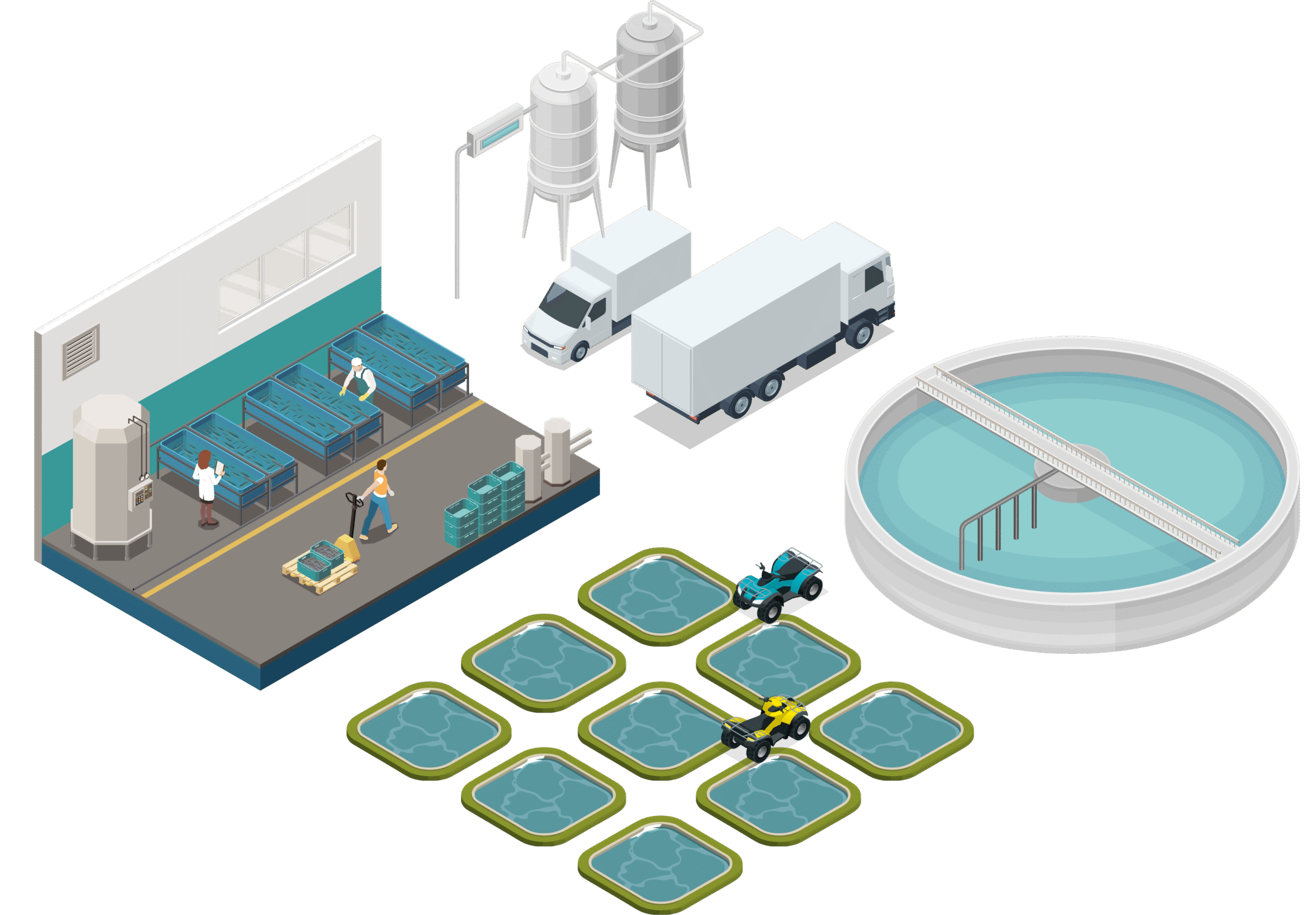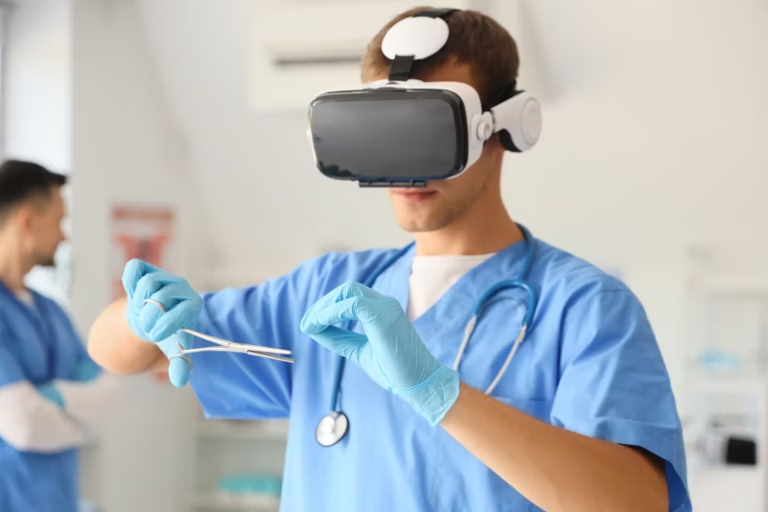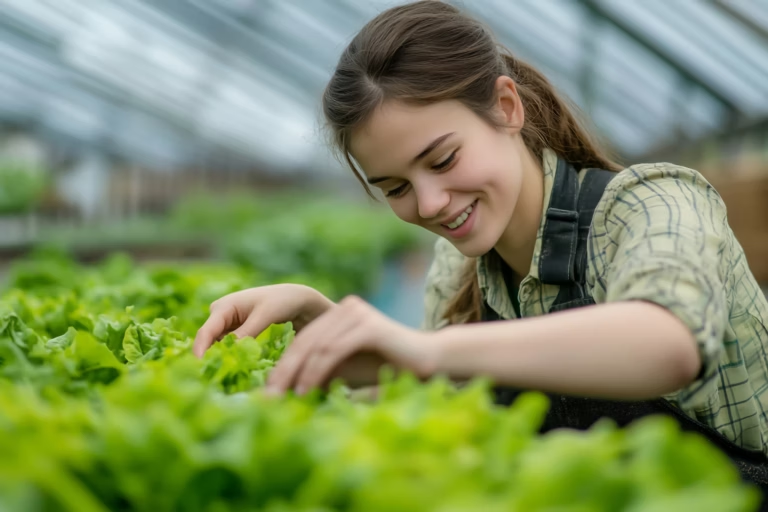Aquaculture
Growing Opportunity: Dive into Aquaculture Careers
Discover the Greater Whitsunday Aquaculture Industry
In the Greater Whitsunday region, aquaculture is helping feed the future — and transforming the way we produce food. From premium barramundi to sustainably farmed tiger prawns, the region produces over half of Queensland’s aquaculture output, valued at more than $147 million each year.[1]
The region is home to two Queensland Government Aquaculture Development Areas or ADAs (special zones set aside to support sustainable aquaculture growth)[2]. With an ideal climate, advanced infrastructure, and strong research partnerships, the region is well positioned for major expansion. As the industry continues to innovate and grow responsibly, Greater Whitsunday is on track to become a global leader in sustainable seafood production.
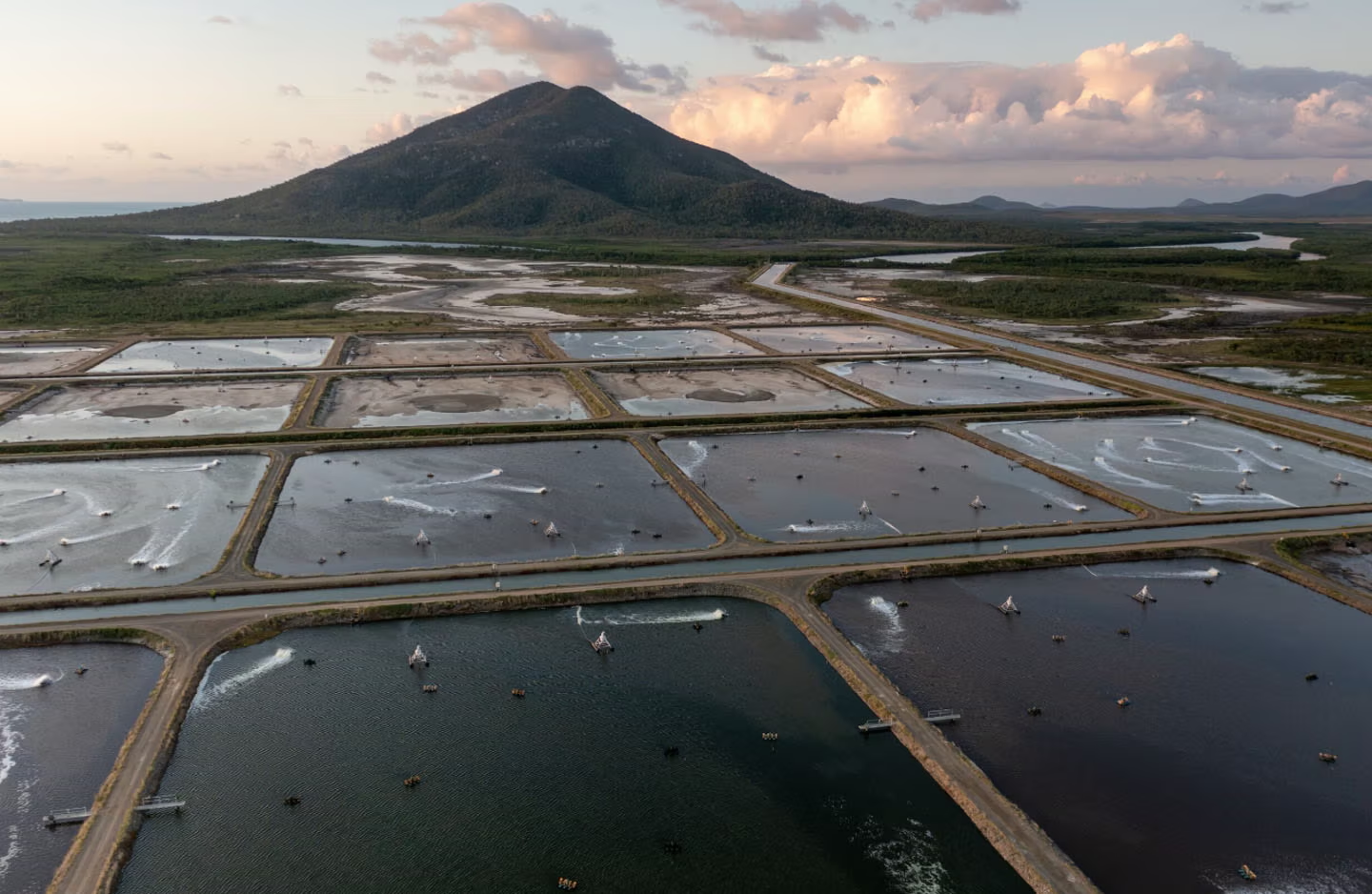
Why Consider a Career in Aquaculture?
-
Innovative Technology
Automated feeding systems, precision water quality monitoring, and AI-driven disease management tools and analytics are revolutionising aquaculture practices, enhancing efficiency and sustainability.
-
Diverse Roles
From hands-on farming to research and development, opportunities span hatcheries, biosecurity, water management, automation, digital supply chains, marine biology, renewable energy systems and sustainable farming practices.
-
Global Impact
With demand for sustainable food sources on the rise, aquaculture is one of the fastest-growing industries worldwide. A career in this field means contributing to global food security while gaining future-ready skills in a rapidly evolving sector.
Industry Insights
Did you know Aussie prawn farmers are using smart glasses to help grow better seafood? In Queensland, they’re working with top scientists to use augmented reality headsets that show real-time water quality data—like oxygen and pH levels—right in front of their eyes. It means they can make faster, smarter decisions without stopping what they’re doing. Pretty cool way to mix science, tech, and farming, right? [3]
On top of that, aquaculture is emerging as a key player in Australia’s journey toward net zero emissions. [4] Right here in the Greater Whitsunday region, prawn farms are investing in automation and water-saving tech to boost production and reduce environmental impact. As sustainable aquaculture practices grow, so do opportunities for young people to shape the future of food.
Exciting Career Opportunities in Aquaculture
When people think of aquaculture, they often picture fish in big tanks—but that’s just one part of the picture. Aquaculture is a dynamic industry that combines science, technology, sustainability, and business. It requires researchers developing disease-resistant species, engineers designing smart farming systems, and data analysts using AI to monitor water quality and predict harvests. Whether you’re passionate about working on the water, in a lab, or with cutting-edge technology, there’s a role in aquaculture for you.
Aquaculture isn’t just about fish farming—it’s an entire industry made up of various fields working together. Here are some of the areas where you could build a career:
-
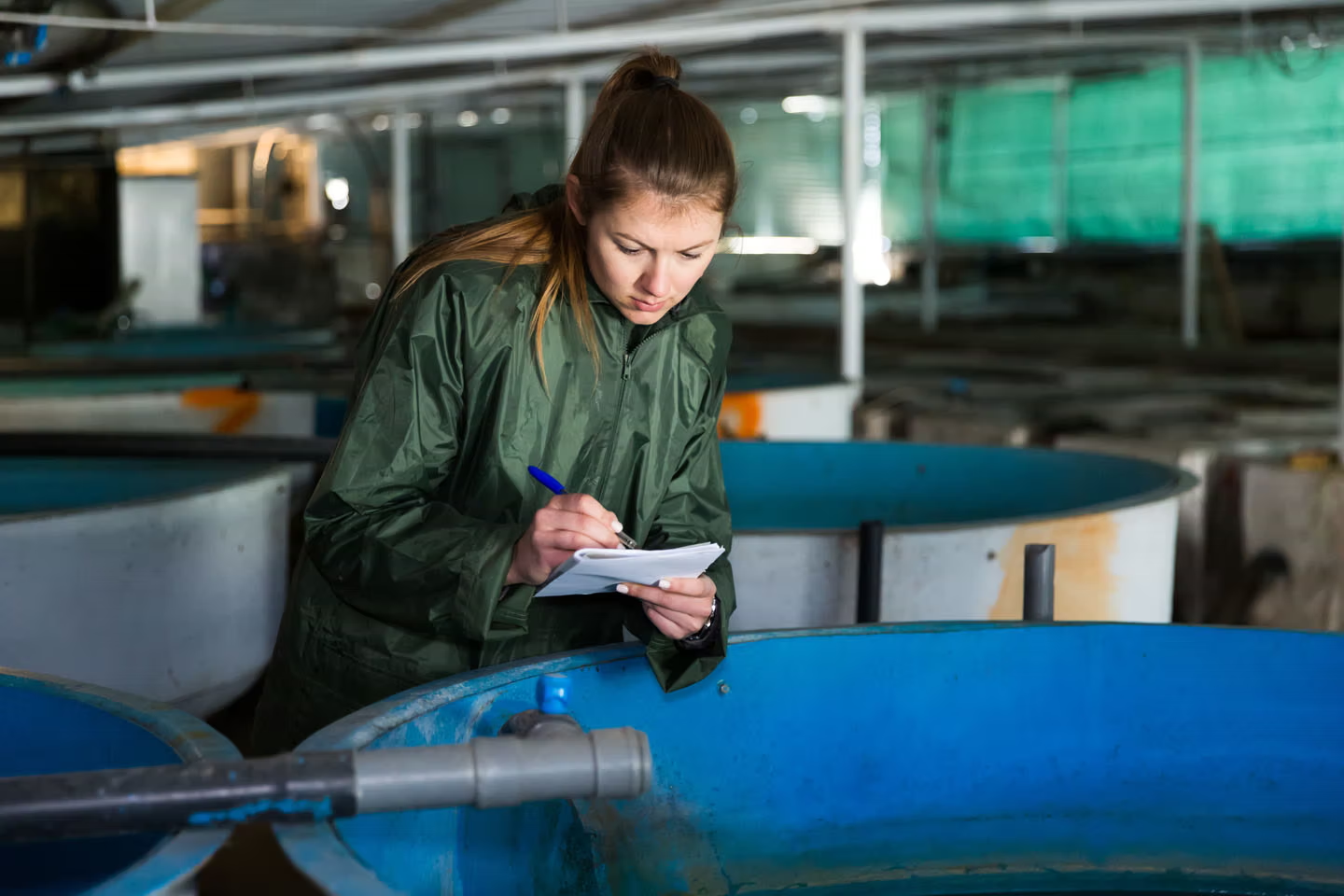
Science & Technology
Innovating with cutting-edge research, smart systems, and sustainability practices to advance aquaculture production.
-
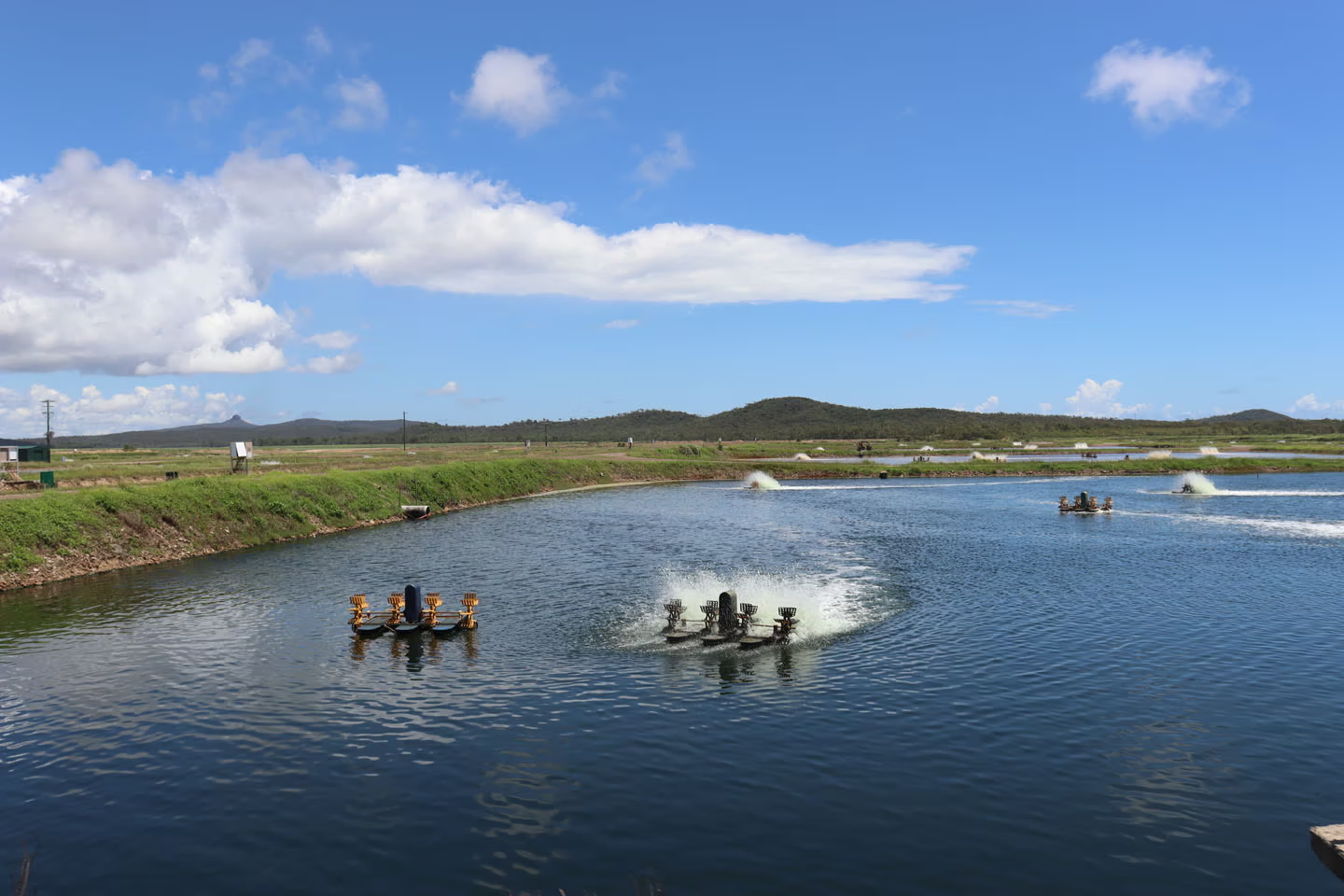
Mechanical & Engineering
Designing and maintaining the machinery and technology that power modern aquaculture operations, from water systems to automated feeding.
-
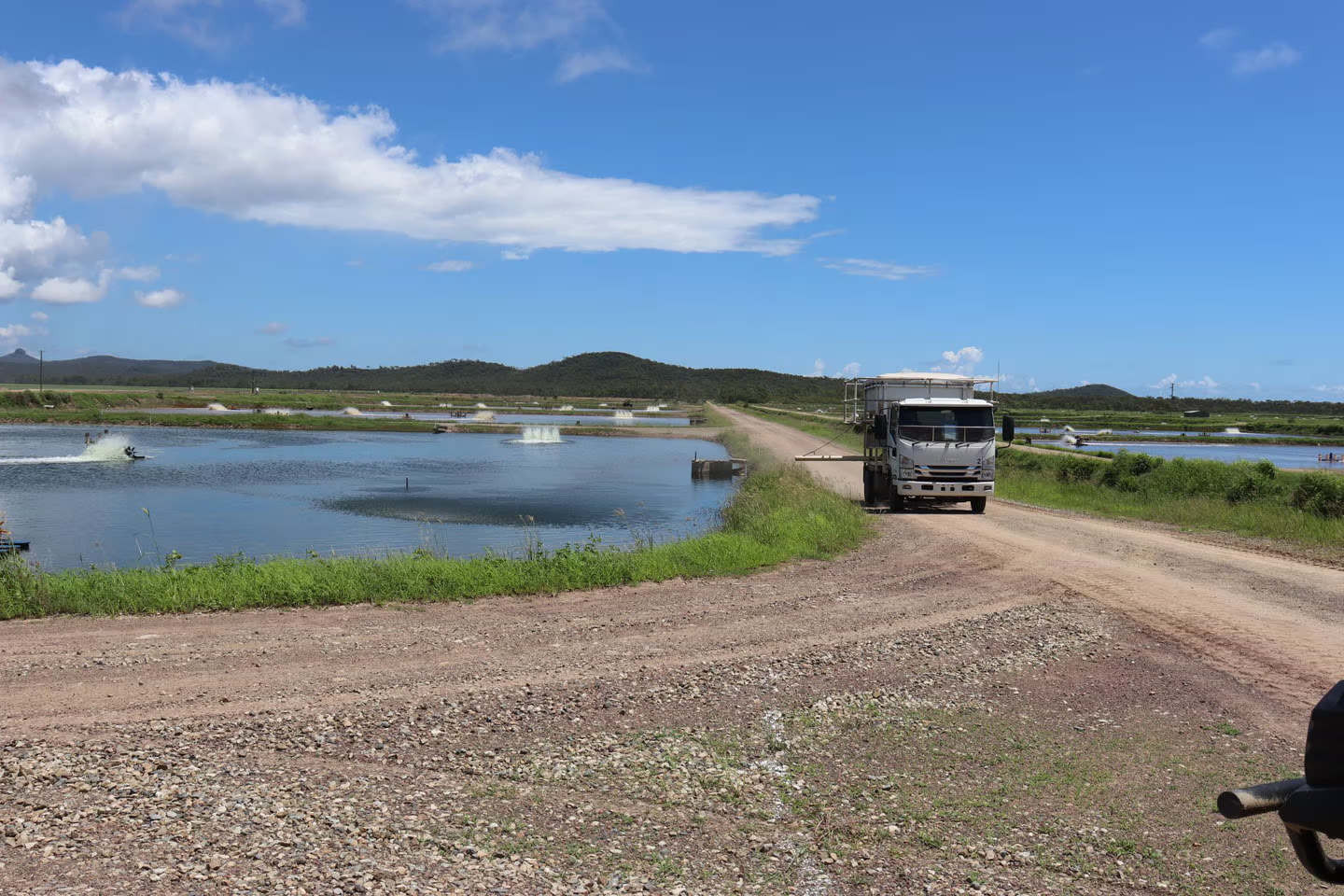
Business & Supply Chains
Managing logistics, sales, and agribusiness to ensure seafood gets from farm to table efficiently and sustainably.
-
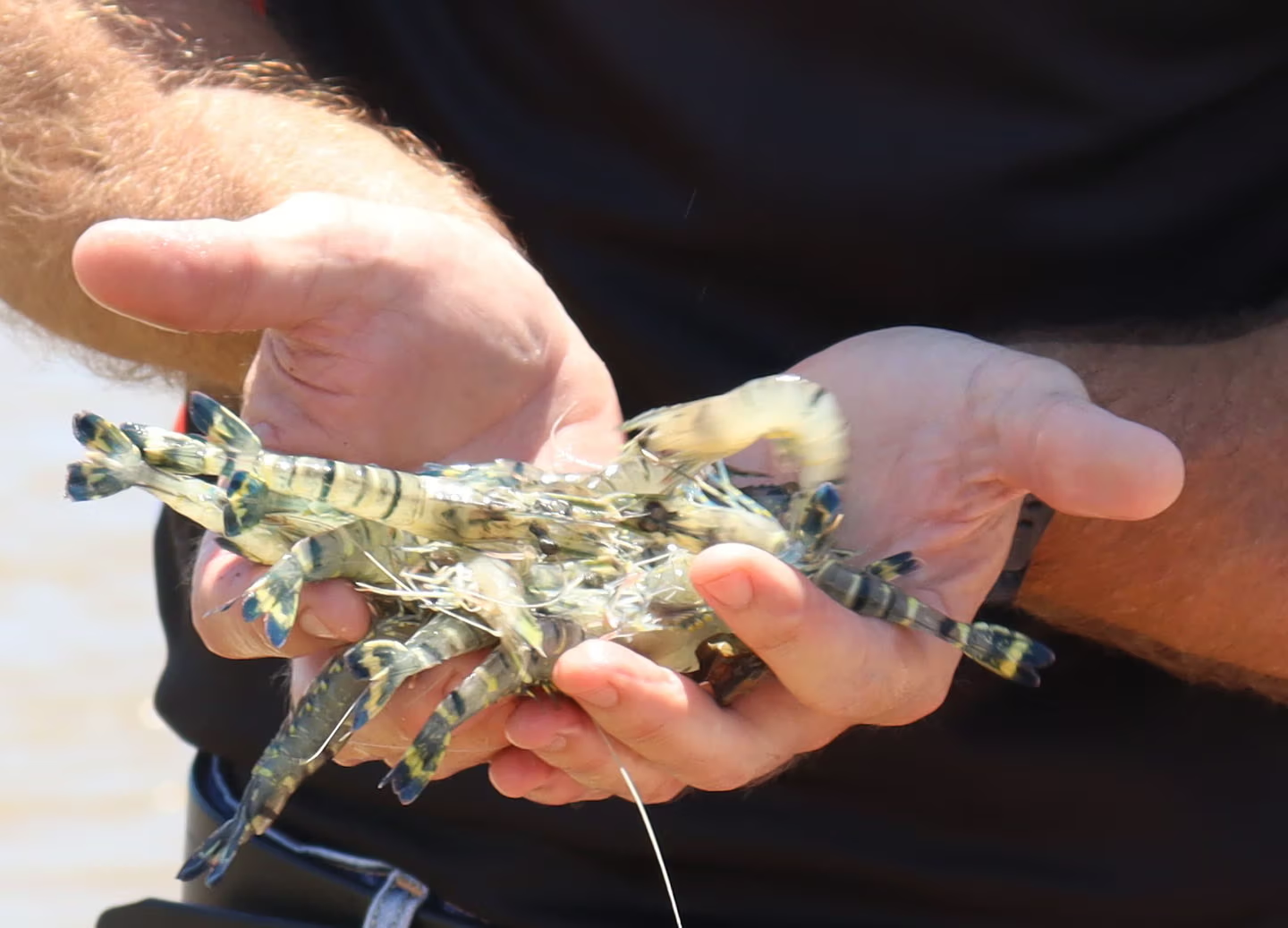
Hands-on Farming & Production
Direct involvement in cultivating seafood, from hatcheries to harvest, focusing on sustainable farming practices.
-
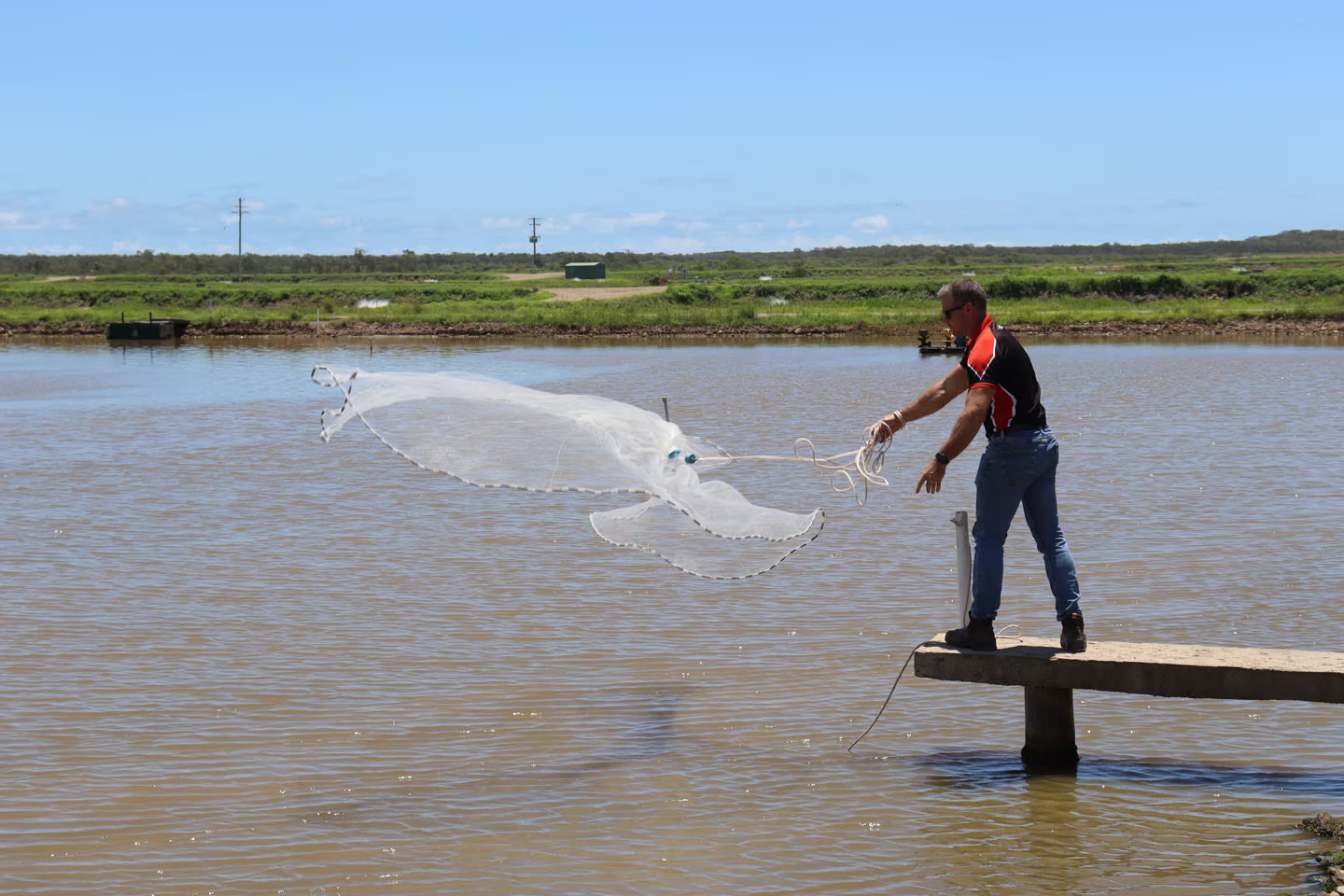
Sustainable Food Production & Global Food Security
Contributing to the production of healthy, sustainable seafood to meet the growing global demand for protein while minimising environmental impact and promoting food security.
Explore what a future in
Aquaculture could look like
Dive deeper into Aquaculture Careers
Curious about what it’s really like to work in aquaculture? Let’s take a closer look at the opportunities and how they could shape your future.
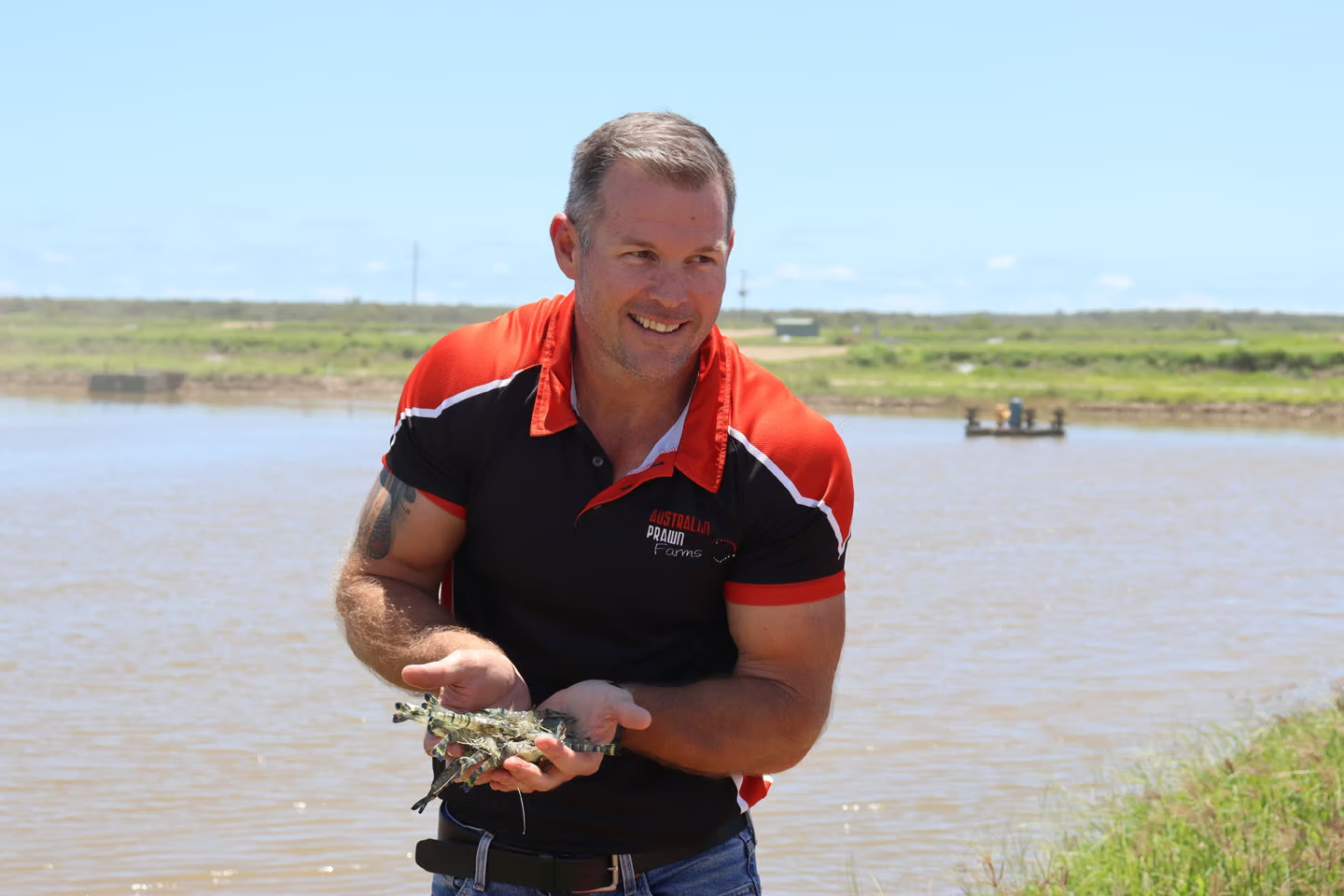
Growing Careers in Aquaculture
Discover how sustainability and innovation are transforming aquaculture—hear from the people making a real difference in this fast-growing industry.
Find Out More About Aquaculture and Potential Careers!
Want to dive even deeper into what aquaculture looks like in the Greater Whitsunday region? Explore these resources to discover how this dynamic industry is creating exciting career opportunities and impacting on the region’s future.
-
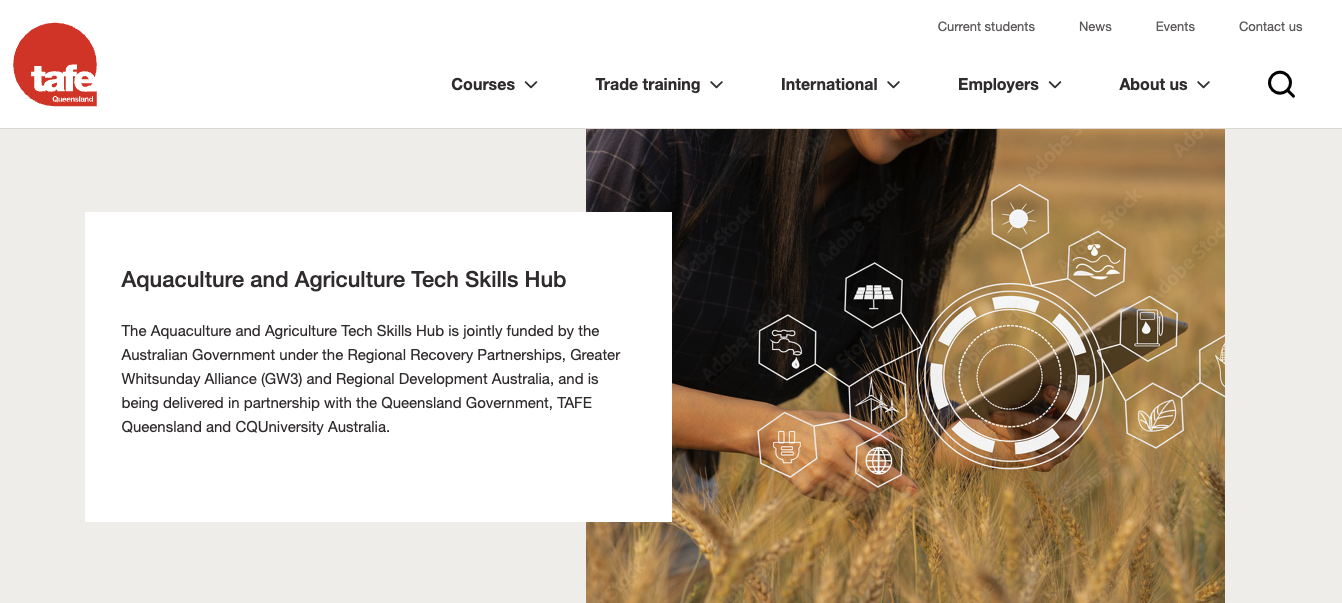
Aquaculture and Agriculture Tech Skills Hub
Dive into bite-sized learning with micro-credentials that let you pick up essential skills fast, getting you ready for an exciting career in the rapidly growing aquaculture industry.
-
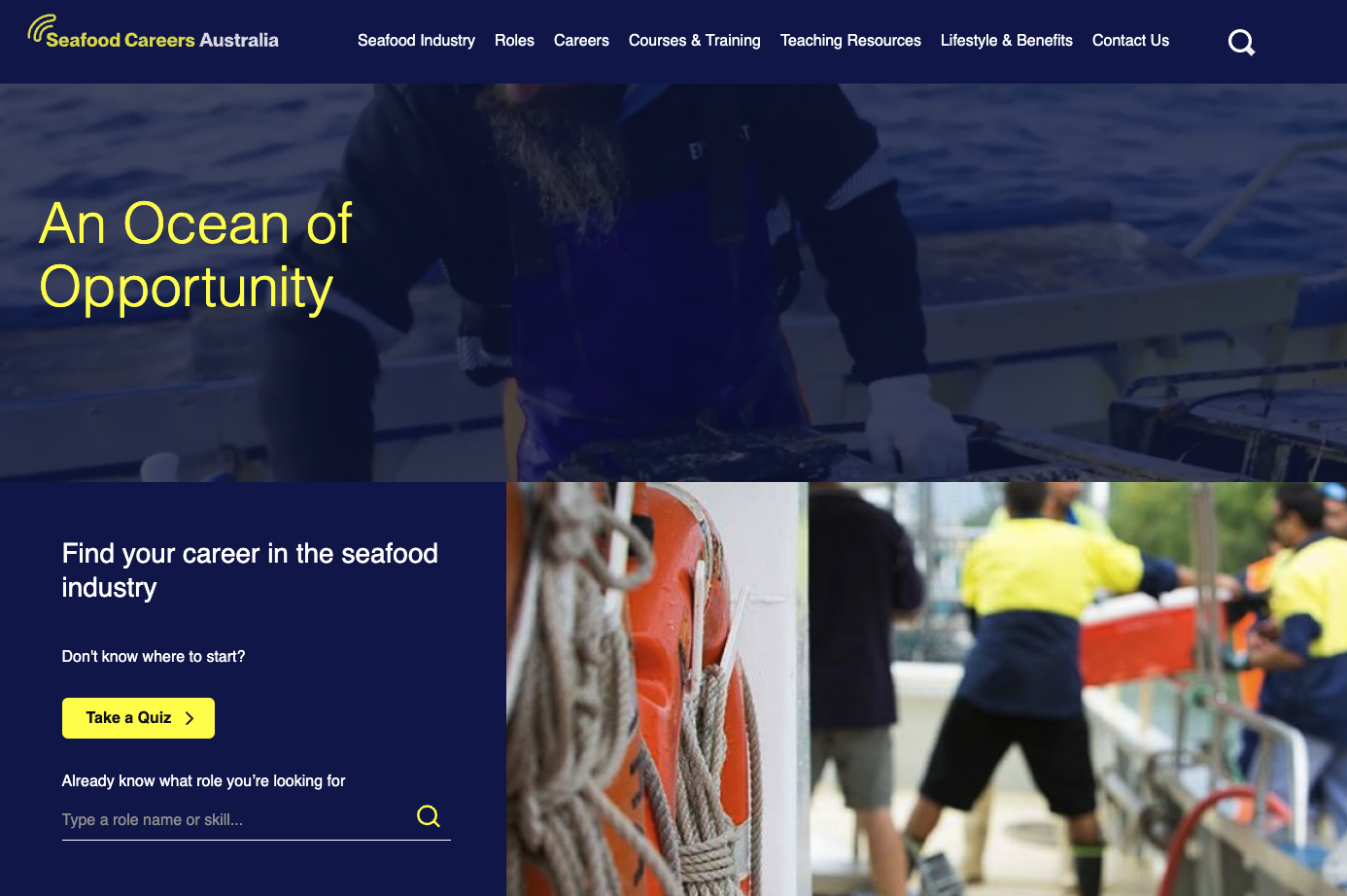
Seafood Careers Australia
Explore the world of aquaculture with Seafood Careers Australia. Learn about the industry, uncover different roles, and find training opportunities to kickstart your career.
Want to learn more about study and career pathways?
Explore regional options and find out who to contact for more information here.
From cutting-edge science to sustainable seafood—could you find your future in aquaculture?
Keep exploring to see where your future could take you
-
Marine Biologist
Study and manage aquatic organisms to support sustainable aquaculture and healthy marine environments.
As a Marine Biologist in aquaculture, you’ll research fish, shellfish, and other marine species to improve breeding, growth, and disease management. You’ll monitor water quality, design habitat conditions, and work with farmers to optimise production while protecting ecosystems. Your role combines science, conservation, and practical aquaculture techniques.
In the Greater Whitsunday region, Marine Biologists support the growing aquaculture industry by helping maintain sustainable practices and boosting production of seafood for local and global markets.
What you might do day-to-day:
- Monitor health and growth of aquatic species in farms
- Test and manage water quality and environmental conditions
- Conduct research on breeding, nutrition, and disease control
- Collaborate with aquaculture operators to improve farming methods
This role suits people who:
Enjoy science, problem-solving, working outdoors, and protecting marine life.Pathway:
Typically requires a degree in marine biology, aquaculture, or related fields; practical experience is valuable. -
Water Quality Tech
Monitor and manage water conditions to ensure healthy environments for aquaculture farms and aquatic species.
As a Water Quality Technician in aquaculture, you’ll test and analyse water parameters like temperature, salinity, oxygen, and nutrient levels. You’ll identify potential issues that could affect the health of fish, shellfish, and other marine life, and work to maintain optimal conditions. Your role supports sustainable aquaculture production and environmental protection.
In the Greater Whitsunday region, Water Quality Technicians are vital to maintaining healthy water systems that support the region’s expanding aquaculture industry, helping supply quality seafood to local and international markets.
What you might do day-to-day:
- Collect water samples and test for key quality indicators
- Monitor and record environmental conditions on farms
- Identify and report changes that may impact aquatic health
- Collaborate with farm managers to adjust water management practices
This role suits people who:
Enjoy science, attention to detail, outdoor work, and keeping things running smoothly.Pathway:
Typically requires a certificate or degree in environmental science, aquaculture, or related fields. Practical experience is beneficial. -
Maintenance Fitter
Keep aquaculture farms running smoothly by maintaining, repairing, and servicing essential machinery and equipment.
As a Maintenance Fitter in aquaculture, you’ll work on pumps, feeding systems, water filtration, boats, and mechanical equipment vital to fish and shellfish farming operations. You’ll diagnose faults, perform repairs, and carry out routine maintenance to ensure farm productivity and safety. Your technical skills help prevent downtime and support sustainable seafood production.
In the Greater Whitsunday region, Maintenance Fitters play a key role in aquaculture, keeping equipment and systems running smoothly so farms can grow, harvest, and process seafood efficiently and safely.
What you might do day-to-day:
- Inspect, maintain, and repair mechanical and hydraulic equipment
- Diagnose and fix faults in pumps, feeders, and water systems
- Perform routine servicing to prevent equipment breakdowns
- Work closely with farm operators to schedule maintenance
This role suits people who:
Enjoy working with tools, solving problems, and supporting operations that help keep systems running day after day.Pathway:
Trade qualifications in fitting, mechanical maintenance, or related fields are typical with on-the-job training common. -
Supply Chain Coordinator
Manage the flow of seafood products from farm to market by coordinating logistics, quality control, and communication within the supply chain.
As a Supply Chain Coordinator in aquaculture, you’ll organise transport, track inventory, and ensure timely delivery of fish and shellfish to processors, retailers, and export markets. You’ll work closely with farmers, transporters, and buyers to maintain product quality and meet regulatory standards. Strong planning and communication skills are essential in this fast-paced role.
In the Greater Whitsunday region, Supply Chain Coordinators play a vital role in connecting local aquaculture producers to national and international markets, supporting the region’s growing seafood industry.
What you might do day-to-day:
- Schedule and monitor transport and delivery of seafood products
- Manage inventory and maintain supply chain records
- Liaise with farmers, transport companies, processors, and customers
- Ensure compliance with quality and regulatory requirements
This role suits people who:
Enjoy organising, problem-solving, and working with diverse teams and systems.Pathway:
VET qualifications in logistics, supply chain management, or aquaculture are beneficial. -
Hatchery Technician
Support the early life stages of aquatic species by managing breeding, hatching, and larval rearing in hatchery facilities.
As a Hatchery Technician in aquaculture, you’ll care for eggs and larvae of fish, shellfish, and other marine species. You’ll monitor water quality, feed larvae, and maintain hatchery equipment to ensure healthy development. Your role is vital in producing strong, healthy juveniles for grow-out farms and sustaining aquaculture production.
In the Greater Whitsunday region, Hatchery Technicians play an important role in supporting the expanding aquaculture industry, contributing to sustainable seafood supply chains.
What you might do day-to-day:
- Monitor and maintain water quality in hatchery tanks
- Feed and care for eggs, larvae, and juvenile aquatic species
- Clean and maintain hatchery equipment and facilities
- Record data on growth, survival rates, and environmental conditions
This role suits people who:
Are patient, reliable, and enjoy seeing the results of their work overtime.Pathway:
Certificate or diploma in aquaculture or marine biology is common and on-the-job training is typical. -
Sustainability Officer
Promote environmentally responsible practices to support sustainable growth in the aquaculture industry.
As a Sustainability Officer in aquaculture, you’ll develop and implement strategies to reduce environmental impacts, ensure regulatory compliance, and improve resource efficiency. You’ll monitor water quality, waste management, and habitat protection while working with farmers to adopt best practices. Your role helps balance production goals with ecosystem health.
In the Greater Whitsunday region, Sustainability Officers are key to advancing sustainable aquaculture, protecting local waterways, and supporting the region’s reputation for quality seafood production.
What you might do day-to-day:
- Develop and monitor sustainability policies and programs
- Conduct environmental assessments and water quality monitoring
- Advise farmers on best practices for resource use and waste reduction
- Collaborate with regulators, scientists, and industry stakeholders
This role suits people who:
Are passionate about the environment, enjoy problem-solving, and have strong communication skills.Pathway:
Typically requires a degree in environmental science, aquaculture, or related fields; experience in sustainability or agriculture is beneficial. -
Lab Technician
Support aquaculture operations by conducting scientific tests and analyses to monitor the health of aquatic species and their environment.
As a Lab Technician in aquaculture, you’ll collect and test water, soil, and biological samples to assess water quality, disease presence, and overall farm conditions. You’ll analyse data to help farmers maintain healthy stocks and improve production. Your work ensures that farming practices meet industry standards and environmental regulations.
In the Greater Whitsunday region, Lab Technicians play a vital role in supporting the expanding aquaculture industry by providing accurate data that helps sustain high-quality seafood production.
What you might do day-to-day:
- Collect and prepare samples from water, soil, and aquatic animals
- Perform laboratory tests on water quality and biological samples
- Record and interpret data to identify potential health issues
- Work with farm managers and scientists to support decision-making
This role suits people who:
Enjoy science, attention to detail, and problem-solving in a lab environment.Pathway:
Typically requires a certificate or diploma in laboratory technology, aquaculture, or related fields.

